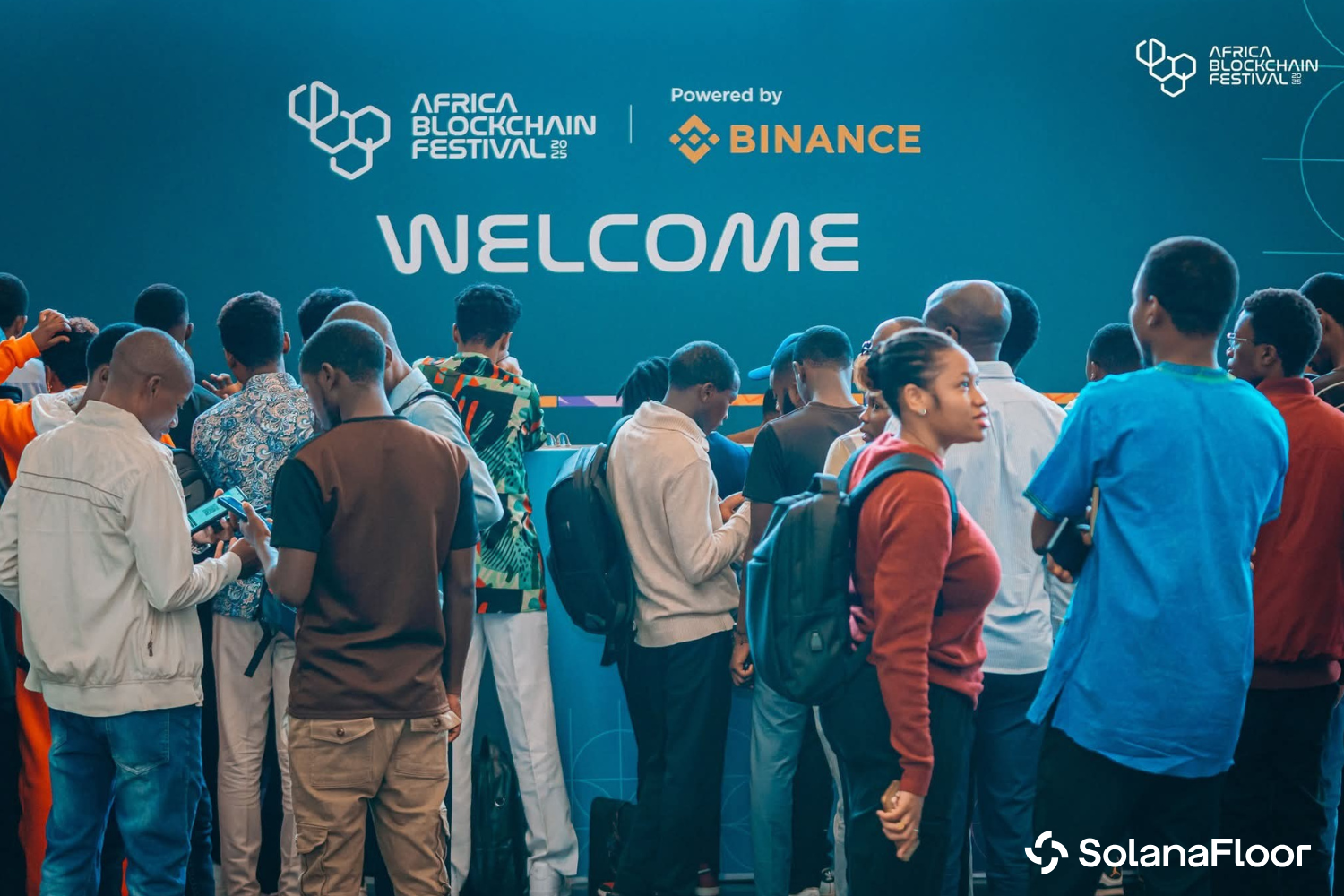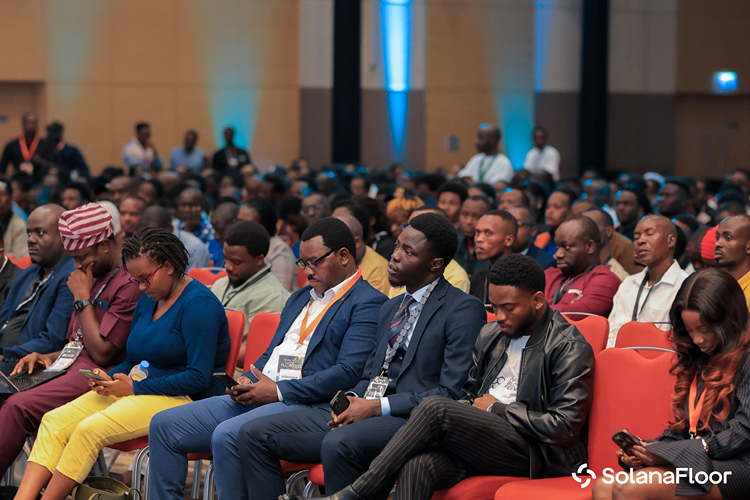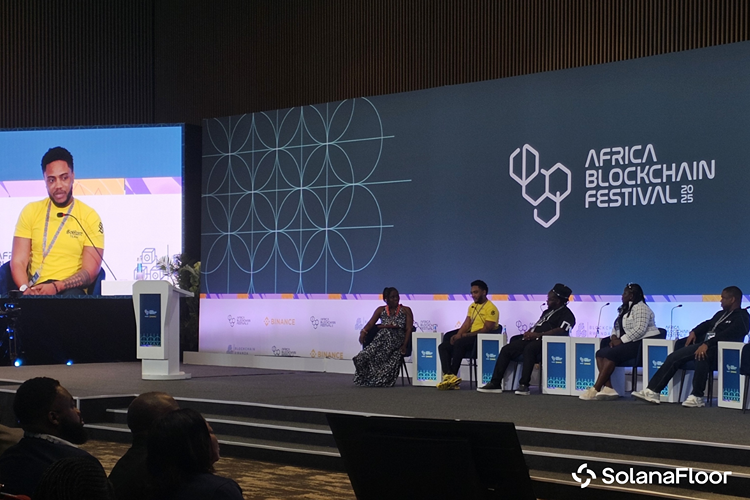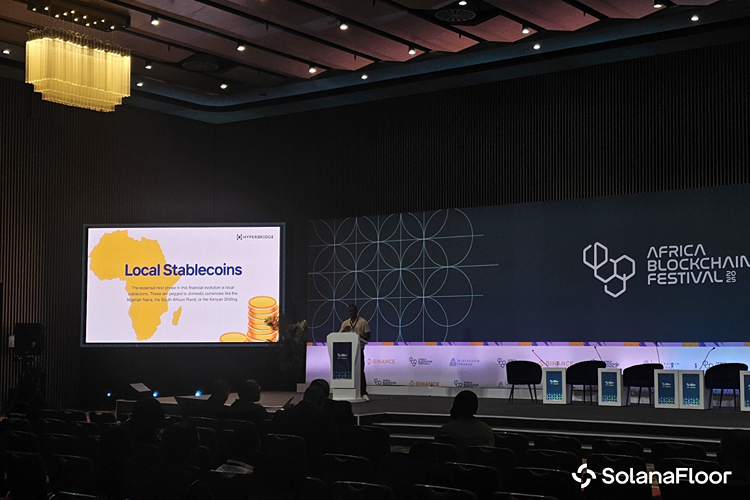
Kigali, the City of a Thousand Hills, came alive on the 7th of November as policymakers, regulators, builders, investors, entrepreneurs, artists, and enthusiasts from all walks of life headed to the Kigali Convention Center for the debut edition of the Africa Blockchain Festival.
The first day of the Africa Blockchain Festival 2025 opened in Kigali with a clear message: making blockchain relevant and straightforward for Africans. The festival, which ran from November 7 to 9, aimed to explore how emerging technologies can unlock value across Africa’s digital economy.
Olubunmi Fabanwo, the festival's convener, set the tone for the event by emphasizing accessibility. Fabanwo highlighted that the festival also seeks to unleash opportunities for African creatives, bridging technology and culture to spark inclusive innovation.

He added that the idea for the festival had been in development for four years before taking shape in 2025, reflecting the growing recognition of Africa’s potential within the global blockchain ecosystem. Here’s what you might have missed:
Innovation and Regulation: A Rwandan Perspective
One of the opening keynotes, ‘Innovation Meets Regulation: A Rwandan Perspective on Crafting Policies for Emerging Technologies’, featured Senator Frank Habineza, former member of the Rwandan parliament, and was moderated by Emmanuel Babalola, Chief Commercial Officer (CCO) of Fincra and former Director, Fiat and Payment Channels MEA for Binance.
The Senator discussed how Rwanda’s regulatory approach aims to strike a balance between fostering innovation and ensuring responsible adoption. He highlighted the role of the Kigali International Financial Centre (KIFC) in positioning Rwanda as a gateway to Africa’s digital and financial future. Comparing KIFC to Mauritius’s International Financial Center and Casablanca Finance City, he noted Rwanda’s unique focus on sub-Saharan Africa.
Drawing on his experience as a former parliamentarian, Habineza offered a distinct perspective on how regulatory clarity can stimulate innovation while maintaining oversight.
Community Over Capital
The panel ‘Why Africa’s Greatest Advantage is Not Capital, It’s Community’ was indeed insightful. The discussion centered on Africa’s collective spirit as a driving force behind its digital growth.

SuperteamNG co-lead Harri Obi stressed the importance of building communities based on shared growth rather than short-term rewards. The panelists agreed that nurturing authentic communities will sustain the long-term adoption of blockchain and related technologies across the continent.
Building Africa’s Blockchain and AI Infrastructure
On the Policy Stage, panelists discussed the foundations required to build Africa’s blockchain and AI ecosystem. The conversation revolved around education, institutional trust, and policies.
Ayodeji Awosika, founder of Web3Bridge, emphasized that many aspiring developers face challenges due to gaps in basic education. He explained that bootcamps become more effective when participants already have a solid foundation. He also pointed out the role of developer communities in bridging knowledge gaps and fostering continuous learning.
Stablecoins and Cross-Border Payments
Seun Lanlege, founder of Polytope Labs, led a masterclass titled ‘The Next Wave of Payments: How Stablecoins and Bridges are Transforming Cross-Border Transactions’. He explored how the next phase in Africa’s financial evolution involves creating local stablecoins pegged to domestic currencies such as the Nigerian Naira and South African Rand. According to Lanlege, local stablecoins could play a key role in driving financial inclusion and reducing friction in payments.

In another panel on the main stage titled ‘Faster, Cheaper Payments Across Africa’, panelists discussed how blockchain-powered payments can simplify cross-border trade. They highlighted how stablecoins offer transparency and speed while easing regulatory burdens. The panel emphasized that collaboration between innovators and regulators will determine how effectively these solutions scale across different African markets.
In one of the closing sessions, ‘The Stablecoin Wars’ panel, the discussion explored how stablecoins are reshaping Africa’s financial access and what continued reliance on foreign-backed stablecoins means for economic sovereignty.
Panelists debated Africa’s growing reliance on external stablecoin providers, calling for greater regional collaboration to address liquidity fragmentation. They agreed that while stablecoins are a lifeline amid currency fluctuations, the continent must work toward homegrown solutions.
More Exciting Sessions Upcoming
As Day 1 concluded, the energy in Kigali reflected optimism and collaboration. The conversations underscored Africa’s readiness to leverage blockchain and AI for inclusive growth, with simplicity, community, and education standing out as the recurring themes. The following two days promise deeper exploration into policy frameworks and creative blockchain applications designed to shape Africa’s digital future.
Read More on SolanaFloor
Ore Supply Cracks $389k in Daily Revenue, But Can it Last?
Solmate Launches Validator Amidst Tough Conditions For $SOL DATs
Has the Market Bottomed?



